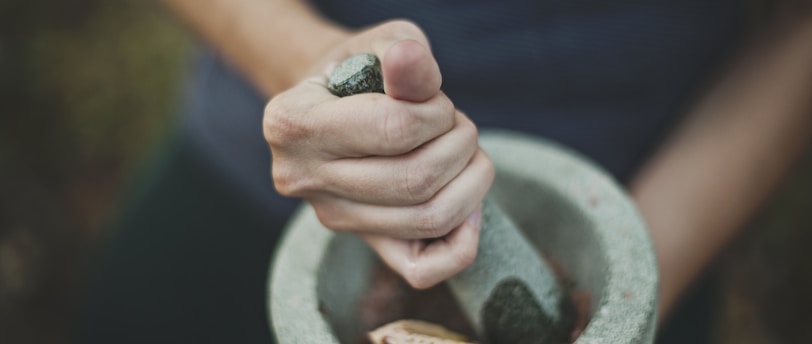Herbal Hazards: 3 Sneaky Supplements to Sidestep for a Healthier You
Unveil the shadowy side of herbal supplements as we expose the tricky trio that could be putting a twist in your path to well-being, while uncovering the savvy secrets to keep your wellness journey on the right track
8/22/20233 min read


In the world of wellness, herbal supplements promise the allure of natural remedies. Yet, not all that's labeled "herbal" is a ticket to vibrant health. Buckle up as we reveal three herbal hazards that might be lurking on store shelves, waiting to trip up your well-intentioned journey to better health.
The Deceptive Three: Unveiling the Culprits
1. Ma Huang (Ephedra sinica): Ma Huang, known as Ephedra sinica, holds a historical role in traditional Chinese medicine as a remedy for respiratory issues and heightened vitality. However, its physiological impact is fraught with complexities centered around its active compound, ephedrine. This molecule, while historically harnessed for its stimulant properties, exerts its effects through its interaction with the sympathetic nervous system. Ephedrine acts as a sympathomimetic, leading to the release of neurotransmitters like norepinephrine. This, in turn, triggers an array of physiological responses, including increased heart rate and elevated blood pressure due to vasoconstriction. While these effects might have been perceived as beneficial in historical contexts, our modern understanding recognizes their potential dangers, especially for individuals with cardiovascular vulnerabilities.
Additionally, ephedrine's stimulant nature can manifest as heightened anxiety and insomnia, providing a stark contrast to its historical reputation as an energy booster. This intertwining of Ma Huang's historical reverence and its negative physiological impacts serves as a reminder that even ancient remedies warrant careful consideration and informed choices in light of contemporary health insights.
2. Kava (Piper methysticum): Piper methysticum, or kava, has held a venerable place in Pacific island cultures for its traditional use as a calming elixir, fostering relaxation and camaraderie. However, its physiological effects are a subject of caution. Kava's active compounds, known as kavalactones, have been linked to potential hepatotoxicity, impacting the liver's function. While the exact mechanisms are still under investigation, studies have shown instances of liver damage, including hepatotoxicity that led to severe liver injury. These negative physiological effects have prompted regulatory measures and advisories in several countries, highlighting the importance of a nuanced understanding of botanical remedies that can bear both beneficial traditions and concerning consequences.
3. Comfrey (Symphytum officinale): With a name that sounds like it should be in a fairytale, Symphytum officinale, commonly known as comfrey, boasts a historical lineage as a medicinal herb utilized for its purported wound-healing and anti-inflammatory properties. However, its physiological effects raise concerns. Comfrey contains pyrrolizidine alkaloids, compounds linked to potential liver toxicity and carcinogenicity. These alkaloids can be absorbed through the skin and digestive system, posing a risk to the liver. Historical use of comfrey for internal consumption and external applications like poultices has given way to caution due to its potential for adverse physiological effects. As a result, regulatory agencies have advised against internal use and have recommended limited external use to prevent unintended health consequences. This dichotomy between historical healing claims and modern physiological insights underscores the complex interplay between traditional wisdom and scientific scrutiny in the world of herbal remedies.
Herbal Wisdom: Navigating the Jungle
While these three herbal hazards wave their caution flags, it's not an invitation to give up on all things herbal. Instead, embrace some herbal wisdom:
1. Research, Research, Research: When considering an herbal supplement, channel your inner detective. Dig into reliable sources, understand potential risks, and check if the supplement is backed by science.
2. Consult Your Guru (a.k.a. Healthcare Provider): Before introducing any new supplement into your routine, have a heart-to-heart with your healthcare provider. They can steer you away from potential pitfalls and tailor advice to your individual needs.
3. Listen to Your Body: Your body is your best barometer. If something feels off while taking an herbal supplement, trust your instincts. It might be your body's way of saying, "Houston, we have a problem."
Herbal Health, Handled Wisely
In the realm of herbal supplements, it's a jungle out there. Ma Huang, kava, and comfrey might be the three musketeers of caution, but with careful consideration and a dash of herbal wisdom, you can navigate this landscape and make choices that genuinely contribute to your overall well-being. So, as you embark on your journey to better health, remember: choose your herbal allies wisely and let your health flourish like the garden of vitality it is meant to be.
